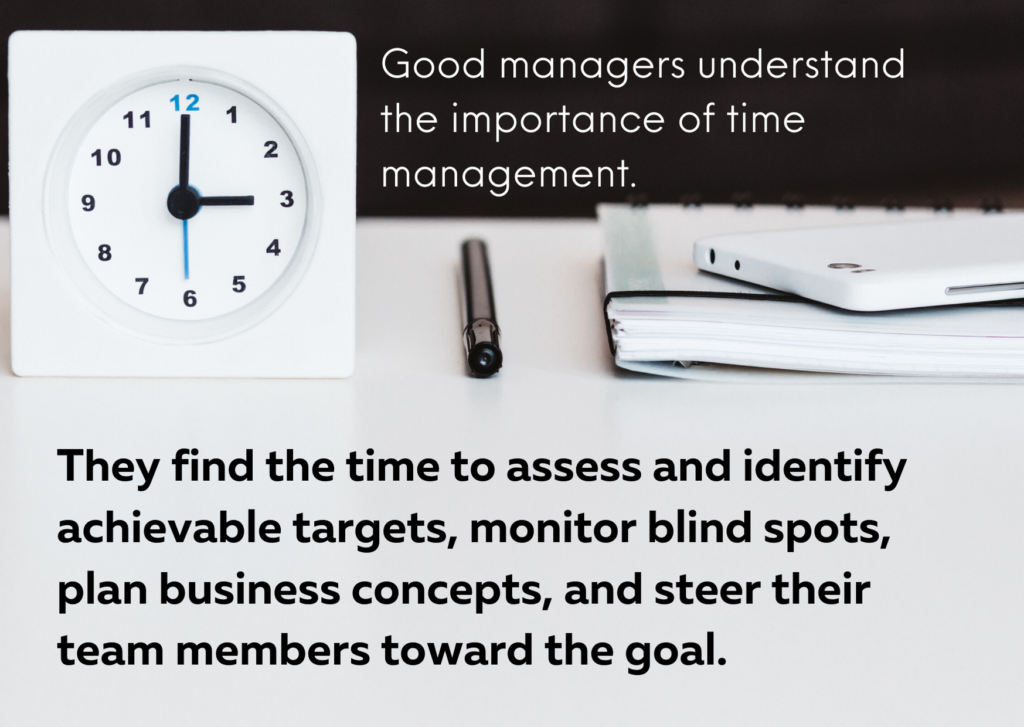Find Your Perfect Business Degree
www.business-management-degree.net is an advertising-supported site. Featured or trusted partner programs and all school search, finder, or match results are for schools that compensate us. This compensation does not influence our school rankings, resource guides, or other editorially-independent information published on this site.
In today’s workforce, management is a core competency. Management skills are not only vital to the company’s success and culture; these are the driving force behind an employee’s ascent to the corporate ladder.
Management is an incredibly important skill for any aspiring business professional. It involves making sure that tasks are completed effectively and efficiently, while also motivating and inspiring employees to perform to their best ability. Improving your core skills in management is essential if you want to become a successful leader.
There are a few simple ways to improve your core skills in management, such as refining your decision-making abilities, mastering the art of delegation, and developing stronger communication skills. Taking the time to sharpen fundamental skills will put you on the path to becoming an exceptional leader.

Management, according to the World Economic Forum, is one of the top 10 skills every leader should strive to master. Managers are responsible for ensuring that the business or organization takes the right direction and analyzes the potential risks. They recommend areas for improvement and, most importantly, motivate employees who do the “real-world” job. Management skills also prepare aspiring managers to take on higher-level positions in the future.
Research reveals that sound decisions at the managerial level positively impact the organization’s profitability and productivity, and drive employee engagement. Management skills are instrumental in the realization of desired outcomes.
For additional information, take a look at these helpful resource articles:
TOOLS, ADVICE, AND RESOURCES FOR BUSINESS STUDENTS
BUSINESS TERMS EVERY BUSINESS STUDENT MUST KNOW
Whether you are a beginner or a seasoned manager, it pays to keep your skills in check and constantly strive to enhance them! Below are 12 ways to improve your core skills in management:
Establish good communication.
The role of the manager involves keeping healthy professional relationships. It requires being able to get along with others, persuade others, and get them to listen to your ideas. You need the right communication skills to ensure that your employees understand exactly what you mean, and likewise, fully grasp what they are trying to tell you.
As an effective manager, be transparent about the context of your statements and stay consistent at all times. Listen to your employees and subordinates. In responding, use simple words and display confidence.
It is easy to resolve issues within the organization when you maintain positive relationships within the team. It also helps reduce conflicts. Moreover, engaging in good talk and displaying the art of persuasion allows for the sharing of ideas. The communication skills of managers also help expand their professional network.
Delegate.

As a manager, it is your responsibility to ensure that everyone is doing their job. You need to make sure every person in the team is putting their skills to good use to reach business targets. An effective manager knows the importance of delegating tasks, monitoring performance, making plans, and working alongside those involved in the project at hand.
Proper delegation entails an adequate assessment of everyone’s skills. When delegating, define the time factor, desired outcome, and input from others. Delegate based on a team member’s strengths and abilities as opposed to their weak points. You should also pay attention to the progress of the assigned tasks. Provide positive reinforcements and coaching to team members when needed. Finally, evaluate each person’s performance and measure the results of the delegated tasks.
Be a good leader.
Leadership and management always go together. Leaders enable others to contribute to an organization. Meanwhile, managers focus on coordinating and directing a group to carry out projects on time. Being a good leader must require that you possess the skills and qualities of a good manager.
A good leader leads by example. Finding out what inspires you and visualizing your goals is an excellent source of motivation for the team. Celebrate even small achievements to boost everyone’s morale. Continually update your knowledge and master new skills for effective leadership.
Develop effective time management.
In the business management field, employees are hired based on their work productivity. Hours can slip by and, the next thing you know, you are failing to meet deadlines and falling short of expectations—all because you didn’t manage your tasks well.

Learning how to be well-organized in time is an essential factor for success. Plan ahead, know the work that needs to be completed, and determine the tasks that eat up most of your time.
Creating a to-do list is also a time saver. Prioritize important tasks and set an allotted time to finish each of them. Doing this lets you focus on only one goal at a time and avoid getting half-baked results. Through effective time management, you can assess and identify achievable targets, monitor blind spots, plan business concepts, and steer your team members toward the goal. Time lost is money lost, as they say.
Do internships and volunteer.
Any manager will tell you that doing the “actual work” will enhance your skills. As you transition from your student to professional life, engage in volunteer work and internships for real-world experience. Through this, you are learning from higher-management leaders and consultants under direct supervision.
Internships and volunteer work teach you lessons that aren’t taught in the academe: the best work techniques, problem-solving tactics, and leadership strategies. They give you practical insights and opportunities to sharpen your proficiencies. These hands-on experiences, therefore, are more valuable than your grade, credit, or salary.
Give and accept constructive feedback.
Feedback can either encourage or discourage. In management, this can diffuse tension, improve the company’s productivity, and lead to professional growth. Giving feedback is essential for coaching and mentoring employees and team members who need it.
To improve management skills, habitually check employees beyond their yearly performance reviews. Conduct regular meetings to identify the problems before they spin out of control.
A study by Gallup reveals that members receiving regular feedback are more likely to do outstanding work. Another source indicates that 79% of employees stated a lack of appreciation as a crucial reason for quitting their jobs. Meanwhile, in delivering feedback, do not focus on the person’s personality; instead, emphasize the progress that the individual has been making.
Keep learning.
The brightest managers acknowledge the importance of updating their knowledge. Avoid the feeling of stagnation that can affect your decision-making and management.

There are numerous strategies for skills upgrading out there; make sure you make the most out of them! Read new books and research. Scour the internet for great new ideas. Attending seminars and workshops is also a way to upskill. The more diverse your sources of information are, the better you are exposed to new perspectives.
In the corporate world where you are expected to be an expert, the lack of drive to learn may compromise your professional value. You become less likely to adapt to the changing environment. Remember, people who are not interested in learning easily become irrelevant to an organization.
Do you need some encouragement? See how these guys and gals succeeded in business… READ THIS: MOST INNOVATIVE BUSINESS LEADERS
Don’t just settle for a decent-paying and stable job. Acquiring certifications and courses is an excellent way to excel further in your chosen area. This can boost the productivity of your organization using evidence-based practices and methods.
In seeking management certifications, there are various careers to choose from. Always select a course that is related to your field of interest. Upskilling can broaden the scope of your knowledge, thereby giving you a competitive advantage over other colleagues. This can also increase your market profitability. Consequently, you become qualified for a high-level management position!
Build a professional network.
A well-built network of professionals will benefit you in the long run. It is your access to a generation of referrals. It will serve as your invitation to exclusive groups and social events, making you visible and respectable.
Facebook and LinkedIn are powerful platforms to boost your relationships with people. They also serve as motivational tools for you to be more productive in the presence of like-minded people. It also cultivates a sense of confidence in you—a critical skill for management!
Develop self-awareness.
Emotional intelligence is what sets high-level managers apart from their peers. It is critical for professionals who need to perceive and understand the perspective of their team members and act on it accordingly. By being self-aware, you can also assess the needs of your employees and eventually come up with proper management strategies.

Self-awareness allows you to control your behavior and emotions in an altered environment, and gain insight into your managerial potential. It reveals the areas that you need to work on and bring yourself to your fullest potential. Set a vision and focus on it!
Build trust.
Trust is a significant element for a company to have a healthy culture. A company with a higher trust rating is more energetic, has greater engagement, and is less prone to internal issues, according to the Harvard Business Review. It also builds a professional dialogue between your colleagues and the company. Being open to the beliefs and diverse viewpoints of everyone in the organization results in a greater sense of camaraderie and motivation. Practical management skills make this happen!
As a manager, you should realize that every decision-making and management action involves trust. Your employees need to feel that they are valued and trusted for them to get the job done. It matters that they are treated fairly, too!
Managers should make the team’s interest a priority; doing so generates a positive attitude toward work and increases productivity. Employees who trust their professional leaders have confidence in the latter’s decision. A lack of trust within the organization causes a toxic work environment and an ineffective feedback culture.
Be people-oriented.
Excellent interpersonal skills are equally crucial as organizational and technical abilities in management. The success (or failure) of a business or organization primarily lies in its employees; therefore, a manager who possesses excellent interpersonal skills can help an organization reach its objectives.
To be people-oriented, you must start by being an inspiration to others. Focus on your employees’ or subordinates’ positive accomplishments and make them feel appreciated. While it may take some charisma to influence employees, it helps to analyze their ideas from their perspective. Empathize. Be approachable. Genuinely care for them! All of these will foster goodwill and loyalty from them.
Benefits a Manager Gains by Improving Managerial Skills
- Increased productivity: Enhancing managerial skills can help managers identify areas of improvement and use appropriate strategies and techniques to cultivate maximum productivity and efficiency.
- Improved leadership capabilities: By improving managerial skills, a manager will be able to cultivate better relationships with team members, establish authority, and serve as a role model for successful leadership.
- Enhanced problem-solving skills: With improved managerial skills, a manager will be able to better evaluate situations, develop achievable solutions, and make the right decisions.
- Improved communication: Enhanced managerial skills will equip a manager with the ability to effectively communicate on all levels of the organization, which can lead to better understanding and smoother workflow.
- Increased employee engagement: Managers with enhanced managerial skills will be better equipped to motivate their teams and increase employee engagement.
- Improved team morale: Creating a positive, collaborative culture can help improve team morale and simplify many difficult conversations.
- Increased job satisfaction: Improved managerial skills can help managers guide their teams to achieve greater success and satisfaction, leading to a more productive and rewarding work environment.
Management skills take time to be learned, enhanced, and mastered. You will meet new managerial challenges as you go along the way – but as long as you are equipped with these skills, and have the constant drive to succeed, you will go a long way!
Check this out: HOW TO SURVIVE BUSINESS SCHOOL
